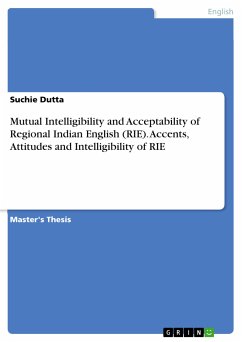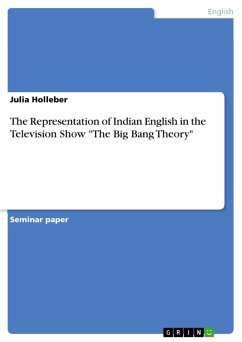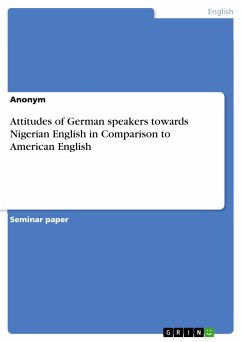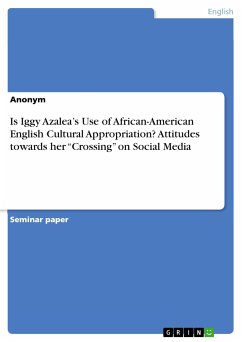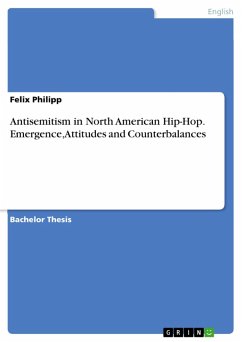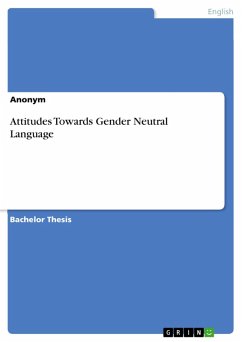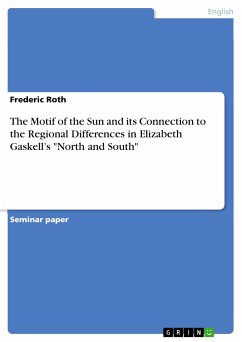Master's Thesis from the year 2021 in the subject English Language and Literature Studies - Linguistics, grade: 65.00, University of Leicester, course: Applied Linguistics and TESOL, language: English, abstract: This study aims to determine the perceived mutual intelligibility of Regional Indian English (RIE) accents from the Standard Indian English (SIE) speakers' perspective; find out if there is attitudinal bias among young SIE speakers towards RIE speakers based on the English Medium/Vernacular Medium (EM/VM) divide; and if the bias has any effect on the perceived intelligibility of RIE accents. This study aims to look into the phenomenon of bias as well. However, as bias is an implicit characteristic that is generally kept veiled from public scrutiny, it could not be incorporated in the questionnaire for analysis. As a result, it was not included overtly as a research question either. Primarily, also because determining the 'acceptability' of an accent (a main research question) implies looking for instances of stereotyping. And stereotyping creates the very conditions for bias to grow and fester. Hence, as bias is a result of a process, this study will attempt to statistically shed light on this subject through data interpretation. Accents tell "the story of who you are" in terms of being the most revealing predicators of a speaker's geographical origins and social background, including perceived educational levels, professional status, social class and identity. These "social and acoustic" aspects of an accent often give rise to stereotypes and value judgements of the speakers and/or groups, especially if it differs in noticeable ways from established pronunciation patterns. This leads to negative reactions or language attitudes that are reflected in systemic discrimination in areas of education and employment. It can be argued that to eschew this discriminatory practice of stereotyping non-native or foreign accents, the intelligibility construct emerged as early as 1900 (Henry Sweet) as an alternative, egalitarian L2 pronunciation target option for L2 learners. Hence, intelligibility of L2 speech pattern found itself to be one of the main concerns of accents. In the study of accents, the object of study is not so much the speaker's speech style but the listener's hearing and understanding. Munro makes a further salient point by noting that the effect of accents on communication can be best judged by an "unsophisticated listener" to see how understandable L2 speakers are within their community. This kind of judgement data of listeners' perceptions are considered to be "gold standard".
Dieser Download kann aus rechtlichen Gründen nur mit Rechnungsadresse in A, B, BG, CY, CZ, D, DK, EW, E, FIN, F, GR, HR, H, IRL, I, LT, L, LR, M, NL, PL, P, R, S, SLO, SK ausgeliefert werden.

